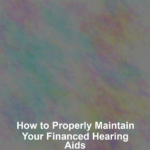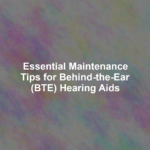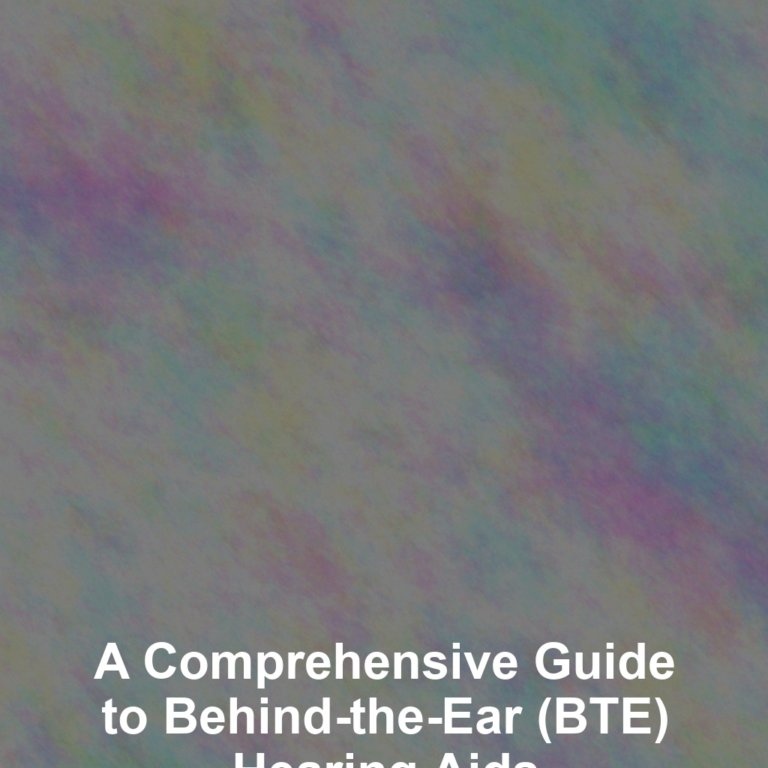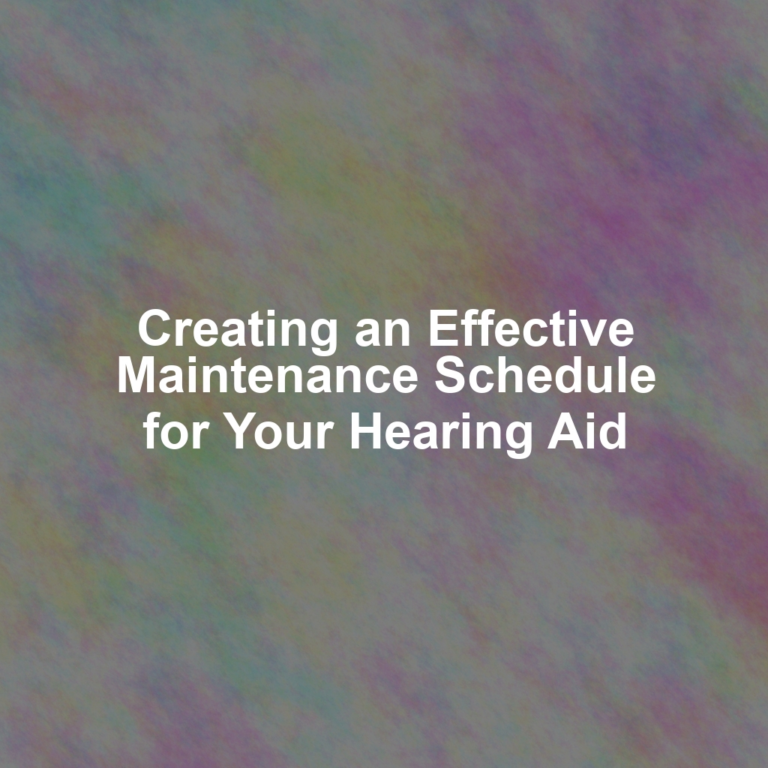When you clean, store, and check your financed hearing aids, youG??re not just maintaining a device; youG??re preserving your investment and ensuring your auditory lifeline functions optimally.
As a wearer of such sophisticated technology, youG??ve got to be diligent about daily cleaning rituals to prevent wax and debris buildup. ItG??s critical to understand the nuances of safe storage practices to avoid unnecessary damage and to master moisture management techniques, as even the slightest negligence could lead to costly repairs or replacements.
Regular performance checkups canG??t be overlooked, and thereG??s a proper schedule for professional care that you should adhere to for long-term reliability. Now, imagine there are simple strategies you havenG??t yet consideredG??ones that could extend the life of your hearing aids far beyond what you thought possible.
LetG??s look closer at these maintenance essentials, where even small adjustments to your routine could make all the difference in the quality and longevity of your hearing experience.
Daily Cleaning Rituals
To ensure your hearing aids function optimally, itG??s essential to establish a routine for daily cleaning. Remember, youG??re dealing with a high-tech device thatG??s exposed to earwax, moisture, and everyday dirt, which can affect its performance.
Start by wiping the surface with a dry, soft cloth or brush to remove debris. Be gentle; you donG??t want to damage the sensitive parts. If youG??ve got a behind-the-ear model, youG??ll need to clean the ear mold separately. Soak it in warm, soapy water once a week, but make sure you disconnect it from the electronic components first.
Check the microphone and speaker ports regularly. If theyG??re clogged, carefully use a wax pick or hook to clear them out. DonG??t poke around too aggressively; you could cause irreparable harm.
Safe Storage Practices
When youG??re not using your hearing aids, storing them properly safeguards their functionality and prolongs their life. ItG??s crucial to keep them in a dry, cool place away from direct sunlight and heat sources to prevent damage. Moisture can be the nemesis of hearing aids; therefore, a dehumidifier case or a drying container is a wise investment to ward off any moisture that could compromise the electronics inside.
Remember to turn off your hearing aids before you tuck them away. This conserves battery life and avoids unnecessary drain. If you know you wonG??t be using them for an extended period, go one step further and remove the batteries entirely. This will prevent any chance of battery corrosion affecting your device.
Keep your hearing aids out of reach of children and pets, as they can be enticing playthings but are harmful if swallowed. Also, ensure the storage case you use is sturdy and secure. A hard case will protect your hearing aids from physical damage, such as being crushed or dropped.
Moisture Management Techniques
Ensuring your hearing aids remain dry is crucial, as moisture can severely impair their performance and longevity. YouG??re likely aware that electronics and water donG??t mix, and your hearing aids are no exception. Sweat, humidity, and even your earG??s natural moisture can lead to damage over time.
To combat this, make a habit of wiping your hearing aids with a dry, soft cloth daily. Be careful not to use any liquids or solvents, which could worsen the problem. If theyG??ve been exposed to high humidity or sweat, consider using a hearing aid dehumidifier overnight. These handy devices draw out moisture while you sleep, ensuring your aids are ready for the next day.
When youG??re not wearing them, store your hearing aids in a cool, dry place. Avoid bathrooms or kitchens where steam and humidity are more prevalent. Cases with moisture-absorbing beads can offer extra protection and are a great investment.
Regular Performance Checkups
While properly managing moisture is key to maintaining your hearing aids, regular performance checkups are just as vital to ensure theyG??re functioning optimally. Just like any sophisticated device, your hearing aids require periodic professional assessments to maintain their performance. You wouldnG??t skip an oil change for your car; donG??t overlook the importance of servicing your hearing aids.
During a checkup, your audiologist can detect and address any subtle changes in your hearing or potential issues with the device that you mightnG??t have noticed. TheyG??ll check the fit, adjust settings, and even update the software if needed. These adjustments are crucial for keeping your hearing aids finely tuned to your current hearing needs.
Professional Care Schedule
To maintain your hearing aidsG?? performance, itG??s essential to establish a routine professional care schedule with your audiologist. This schedule should include regular appointments for detailed cleaning, firmware updates, and assessments of the devicesG?? functioning. Remember, youG??re not just investing in the device; youG??re investing in your quality of life, so keeping up with professional care is crucial.
Your audiologist will likely recommend a visit every six months, but this can vary depending on your specific needs and lifestyle. For instance, if youG??re often exposed to environments that are dusty or humid, you might need to go in more frequently. During these visits, your audiologist can fine-tune your hearing aids, ensuring theyG??re calibrated to your current hearing levels and working optimally.
Additionally, these check-ups are an opportunity to address any concerns or issues youG??ve encountered. If youG??ve noticed any changes in your hearing or if the hearing aids arenG??t performing as expected, donG??t wait for your scheduled appointmentG??contact your audiologist right away. Proactive care can prevent minor issues from becoming major problems, ensuring your hearing aids help you effectively for as long as possible.
Conclusion
YouG??ve invested in your hearing aids, and with some simple steps, theyG??ll keep performing at their best. Remember to gently clean them daily, store them safely when not in use, protect them from moisture, and check their performance regularly.
DonG??t skip on professional check-ups either; theyG??re crucial for long-term care. Following these tips ensures your hearing aids remain in top shape, letting you enjoy clear sound every day. Look after your hearing aids, and theyG??ll look after you.










